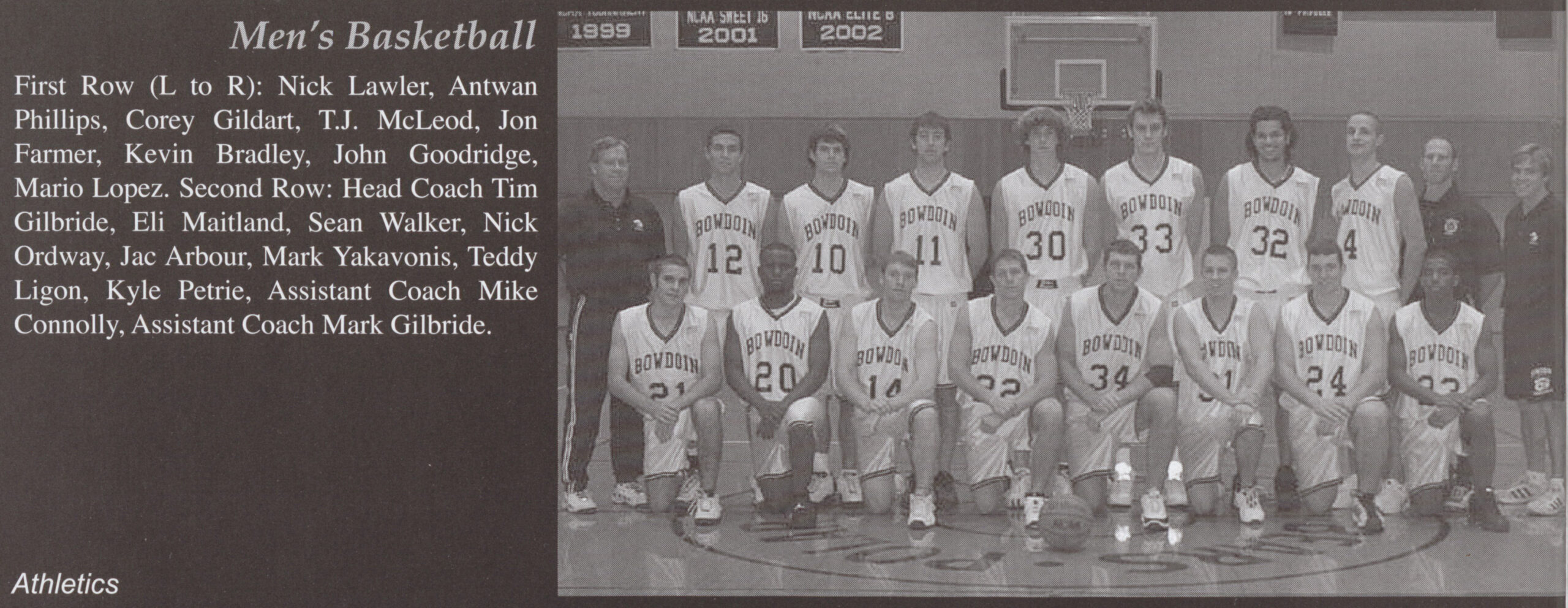Jonathan R. Farmer ’03 among Americans killed in Syria
January 25, 2019
Bowdoin graduate and U.S. Army Green Beret Jonathan R. Farmer ’03 was killed in action in Syria on January 16 along with three other Americans. He was 37 years old.
The Islamic State took credit for the attack in the northern city of Manbij, which killed 19 people in total after a suicide bomber detonated an explosive vest inside a restaurant. Three additional Americans were killed in the bombing, representing the largest loss of American life to date in the conflict against the Islamic State in Syria. It occurred just weeks after President Donald Trump announced plans to withdraw troops from the region, arguing on Twitter that ISIS had been defeated there.
Trump was on hand at Dover Air Force Base as Farmer’s remains were returned to U.S. soil, along with those of Chief Petty Officer Shannon Kent, Department of Defense contractor Scott Wirtz and defense contractor Ghadir Taher, the other three Americans killed in the blast, according to the Pentagon. Farmer was assigned to 3rd Battalion, 5th Special Forces Group (Airborne) out of Fort Campbell, Kentucky. He is survived by his wife, his four children and his parents. He is the first Bowdoin graduate to be killed in action after the September 11, 2001 attacks.
Farmer, who attended the Benjamin School in Palm Beach, Florida, is remembered fondly by those at Bowdoin who knew him.
 Courtesy of Bowdoin Bugle
Courtesy of Bowdoin BugleA member and captain of the men’s basketball team, Farmer was the recipient of the William J. Fraser Trophy, which is given to the player “who best exemplifies the spirit of Bowdoin basketball.”
“If you passed him, he’d have a big smile and a big hello for everyone,” said Head Coach of the men’s basketball team Tim Gilbride. “The kind of person that people enjoyed being around and made the experience of being a teammate, a college student, a classmate and a roommate better.”
Professor of History Patrick Rael, who had Farmer in his class twice, wrote in an email to the Orient, “Jon was simply one of those people who, without ever advertising it or grandstanding, calmly modeled wonderful ideals … May his death help us all be more thoughtful about how and why we risk American lives overseas.”
Current Bowdoin students walking through Hubbard Hall’s second floor may notice that outside of DeAlva Stanwood Alexander Professor of Government Christian Potholm’s office, space is dedicated to celebrating recent Bowdoin graduates who have volunteered to risk their lives in America’s wars. Photos of former Bowdoin students in full combat gear in Iraq and Afghanistan, among other places, dot the wall. As Potholm sees it, this wall is dedicated to Bowdoin students who have decided to serve the Common Good in a way different than most. A photo of Farmer, whom Potholm did not know personally, is a recent addition.
“There’s that adage that freedom is not free,” said Potholm. “So we’re fortunate that we have people from Bowdoin who are willing to serve, but it’s always very, very tragic when we lose one of them. It puts it in very sharp relief that someone is paying that price.”
Farmer did not return to Bowdoin often after his graduation as he served 10 tours overseas, but he had a love for the place. He last corresponded with Gilbride in 2016, when he told him that he could not wait to find the time to return to campus for Gilbride to meet his children.
The men’s basketball team will have a moment of silence in honor of Farmer at their next home game against Middlebury at 7 p.m. on February 1.

Comments
Before submitting a comment, please review our comment policy. Some key points from the policy: